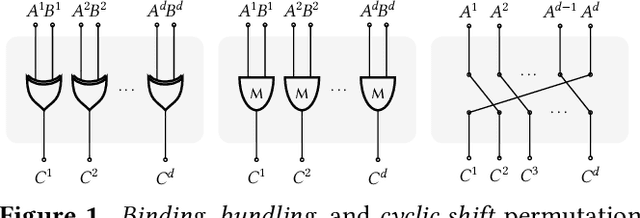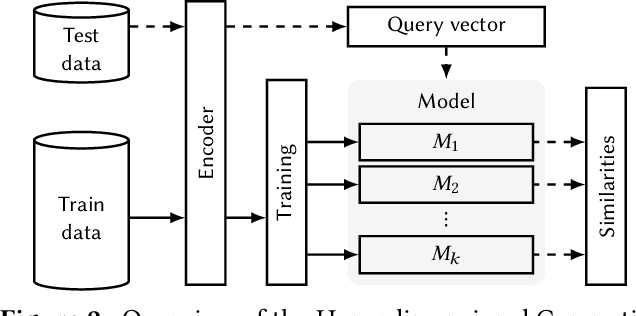An Extension to Basis-Hypervectors for Learning from Circular Data in Hyperdimensional Computing
Paper and Code
May 16, 2022



Hyperdimensional Computing (HDC) is a computation framework based on properties of high-dimensional random spaces. It is particularly useful for machine learning in resource-constrained environments, such as embedded systems and IoT, as it achieves a good balance between accuracy, efficiency and robustness. The mapping of information to the hyperspace, named encoding, is the most important stage in HDC. At its heart are basis-hypervectors, responsible for representing the smallest units of meaningful information. In this work we present a detailed study on basis-hypervector sets, which leads to practical contributions to HDC in general: 1) we propose an improvement for level-hypervectors, used to encode real numbers; 2) we introduce a method to learn from circular data, an important type of information never before addressed in machine learning with HDC. Empirical results indicate that these contributions lead to considerably more accurate models for both classification and regression with circular data.
 Add to Chrome
Add to Chrome Add to Firefox
Add to Firefox Add to Edge
Add to Edge